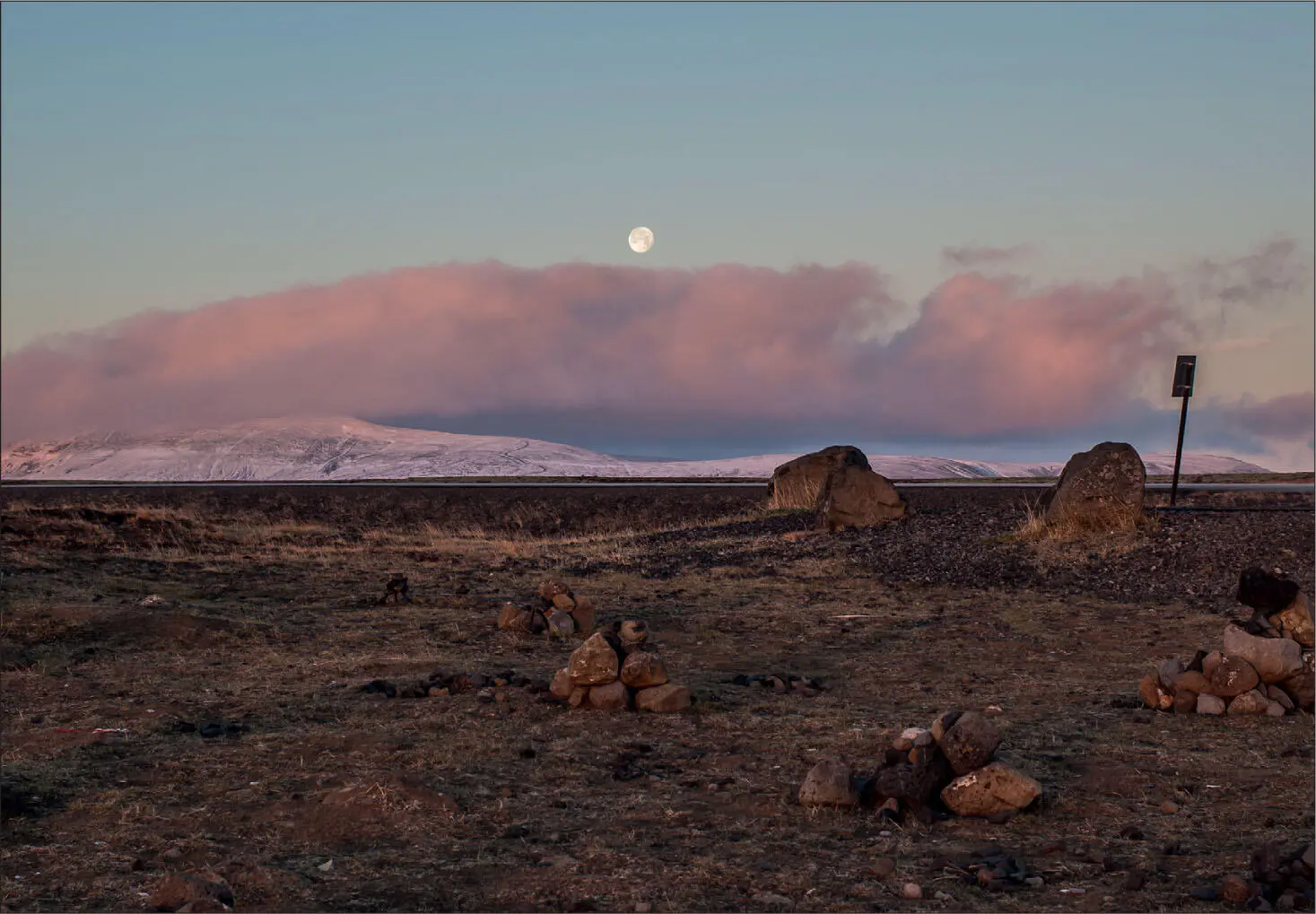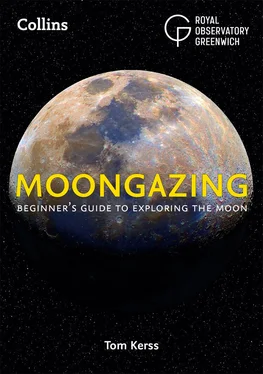
Copyright Copyright Introduction The Moon The Moon and its Origin The Moon’s Orbit and Rotation Lunar Cycle and Phases Surface Features History of Lunar Observation History of Lunar Exploration Observing the Moon Choosing a telescope Eyepieces and Filters Sketching Special Events Eclipses Conjunctions and Occultations Supermoon Blue Moon Lunar Atlas Introduction to the Lunar Atlas Lunar Atlas Astrophotography Lunar Astrophotography Afocal Smartphone Photography Wide-Angle and Telephoto Lunar Photography Lunar Photography with a Telescope Understanding Signal-to-Noise Ratio (SNR) Processing Videos and Images Creating Videos from DSLR Images Revealing the Moon’s True Colours Glossary of Terms Software References Observing Log Index to Lunar Atlas Features Acknowledgements About the Publisher
Published by Collins
An imprint of HarperCollins Publishers
Westerhill Road
Bishopbriggs
Glasgow G64 2QT
www.harpercollins.co.uk
In association with
Royal Museums Greenwich, the group name for the National Maritime Museum,
Royal Observatory Greenwich, Queen’s House and Cutty Sark
www.rmg.co.uk
© HarperCollins Publishers 2018
Text © National Maritime Museum
Cover photograph: ©Tom Kerss
Images and illustrations see acknowledgements
Collins ® is a registered trademark of HarperCollins Publishers Ltd
All rights reserved under International and Pan-American Copyright Conventions. By payment of the required fees, you have been granted the non-exclusive, non-transferable right to access and read the text of this e-book on screen. No part of this text may be reproduced, transmitted, downloaded, decompiled, reverse engineered, or stored in or introduced into any information storage and retrieval system, in any form or by any means, whether electronic or mechanical, now known or hereafter invented, without the express written permission of HarperCollins.
The contents of this publication are believed correct at the time of printing. Nevertheless the publisher can accept no responsibility for errors or omissions, changes in the detail given or for any expense or loss thereby caused.
HarperCollins does not warrant that any website mentioned in this title will be provided uninterrupted, that any website will be error free, that defects will be corrected, or that the website or the server that makes it available are free of viruses or bugs. For full terms and conditions please refer to the site terms provided on the website.
A catalogue record for this book is available from the British Library
eBook Edition © Nov 2018
ISBN 9780008313920
Version: [2018-08-31]
Contents
Cover
Title Page
Copyright
Introduction
The Moon
The Moon and its Origin
The Moon’s Orbit and Rotation
Lunar Cycle and Phases
Surface Features
History of Lunar Observation
History of Lunar Exploration
Observing the Moon
Choosing a telescope
Eyepieces and Filters
Sketching
Special Events
Eclipses
Conjunctions and Occultations
Supermoon
Blue Moon
Lunar Atlas
Introduction to the Lunar Atlas
Lunar Atlas
Astrophotography
Lunar Astrophotography
Afocal Smartphone Photography
Wide-Angle and Telephoto Lunar Photography
Lunar Photography with a Telescope
Understanding Signal-to-Noise Ratio (SNR)
Processing Videos and Images
Creating Videos from DSLR Images
Revealing the Moon’s True Colours
Glossary of Terms
Software References
Observing Log
Index to Lunar Atlas Features
Acknowledgements
About the Publisher
Introduction
The Moon is our celestial companion; a source of light; a comfort to many; an icon. It is older than history, and has accompanied our species, hanging silently above, since we emerged from the oceans, where its presence is still felt today. It is the master of the tides – perhaps the key to life itself – and it has inspired stories, poetry, music, and visual artworks of great beauty.
Today we live in an age where the entirety of the Moon’s surface has been mapped in astonishing detail from orbit, and human beings have left imprints in its soil. It may seem like there is nothing left to discover there, and yet the Moon keeps calling to us – a hypnotic siren song, urging us to revisit it. Our longing to explore has never been stronger.
A modern amateur telescope – even an inexpensive one – can take you on your own personal voyage to the Moon, where you’ll find a timeless landscape whose deep shadows and brilliant highlights are ever changing. Its serene character betrays its true nature as a world of incredible extremes. You can spend a lifetime enjoying these views, and placing yourself there in your mind, just as every great lunar observer before you has, since the invention of the telescope four centuries ago.
It is my hope that this guide will get you better acquainted with the Moon, enabling you to begin making your own observations, and producing your own images. There is no better destination for new space travellers, and the advice ahead will help you take one small step to reach it. Good luck!
Dedicated to Patrick Moore, my mentor and friend. I miss you.
Tom Kerss

The Moon setting in the morning sky over Icelandic mountains.
Конец ознакомительного фрагмента.
Текст предоставлен ООО «ЛитРес».
Прочитайте эту книгу целиком, купив полную легальную версию на ЛитРес.
Безопасно оплатить книгу можно банковской картой Visa, MasterCard, Maestro, со счета мобильного телефона, с платежного терминала, в салоне МТС или Связной, через PayPal, WebMoney, Яндекс.Деньги, QIWI Кошелек, бонусными картами или другим удобным Вам способом.














